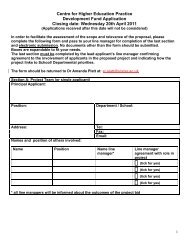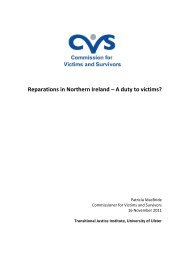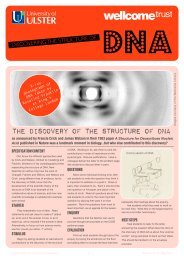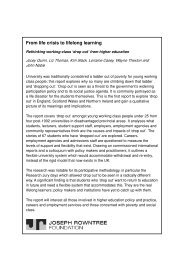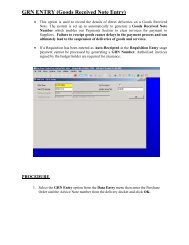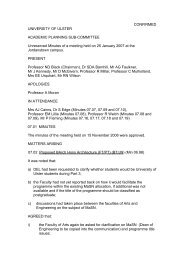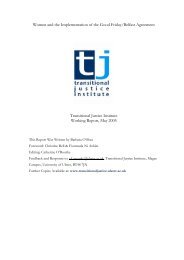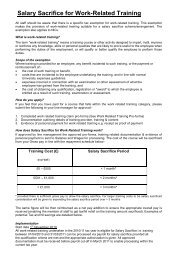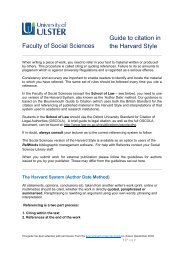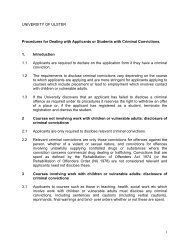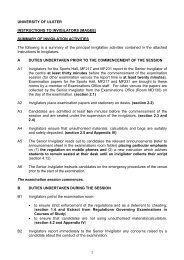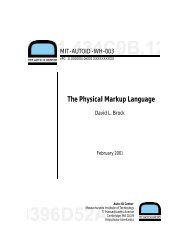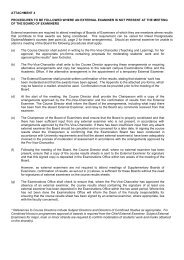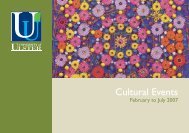ACTION PLAN - University of Ulster
ACTION PLAN - University of Ulster
ACTION PLAN - University of Ulster
Create successful ePaper yourself
Turn your PDF publications into a flip-book with our unique Google optimized e-Paper software.
students understand the ways in which program completion will be both desirable and<br />
rewarding.@ Other tips for mandatory career assessment, updating goals with teachers and<br />
counseling as needed, effective support, quality instruction, and structural elements in a<br />
student retention system are also given and briefly discussed.<br />
What can we do?<br />
This questions is on the Adult Learners Survey and we could include a goal section on<br />
our intake form or have students write their goals. This could be incorporated on the<br />
ULM admission form. Students do have the opportunity to do this if they take a FRYS<br />
course and Goal Setting is taught as given in the Instructor=s manual.<br />
Conflict Management:<br />
What are we doing?<br />
Conflict management is taught in several ways. It may be addressed in individual<br />
sessions with a CASS counselor. In addition, there is a specific FRYS lesson plan for<br />
conflict management. A Conflict Resolution Styles grid is used to teach about<br />
accommodation, collaboration, avoidance, competition and compromise as styles. The<br />
appropriateness and strengths and weaknesses <strong>of</strong> each are analyzed. Students may<br />
complete How Do You Act in a Conflict for bonus credit and to better understand their<br />
response to conflict.<br />
Each semester a conflict management workshop is <strong>of</strong>fered. This workshop is available to<br />
all ULM students on a first come - first serve basis.<br />
Current Research/Information:<br />
For Administrative Conflict Management - According to Bill Waters in Making the<br />
Case for Campus Mediation (originally published in The Fourth R, Vol. 55, Feb/March<br />
1995) and now available at www.campus-adr.org/CR_Services_Cntr/makecase.html ,<br />
colleges and universities are unique entities when compared to more Arational-purposive@<br />
organizations (such as industry, government bureaus, and business firms). Universities<br />
grapple with rarely having a single clearly articulated mission and thus suffer goal<br />
ambiguity and thus higher degrees <strong>of</strong> uncertainty and conflict; are Apeople processing@<br />
institutions and clients demand a choice in the decision-making processes; technology is<br />
problematic because it must be holistic and adaptable to a wide range <strong>of</strong> individual needs;<br />
as pr<strong>of</strong>essional organizations, employees demand control over institutional decision<br />
processes; and they are becoming increasingly vulnerable to external political, economic,<br />
and demographic pressures which make internal decision making more difficult.<br />
(paraphrased and quoted)<br />
For administrative effectiveness, researchers Cameron & Whetton (1985) have outlined<br />
eight tenets for effectiveness:<br />
!Place emphasis on process and outcome;<br />
!Have low fear <strong>of</strong> failure, and willingness to take risks;<br />
154



